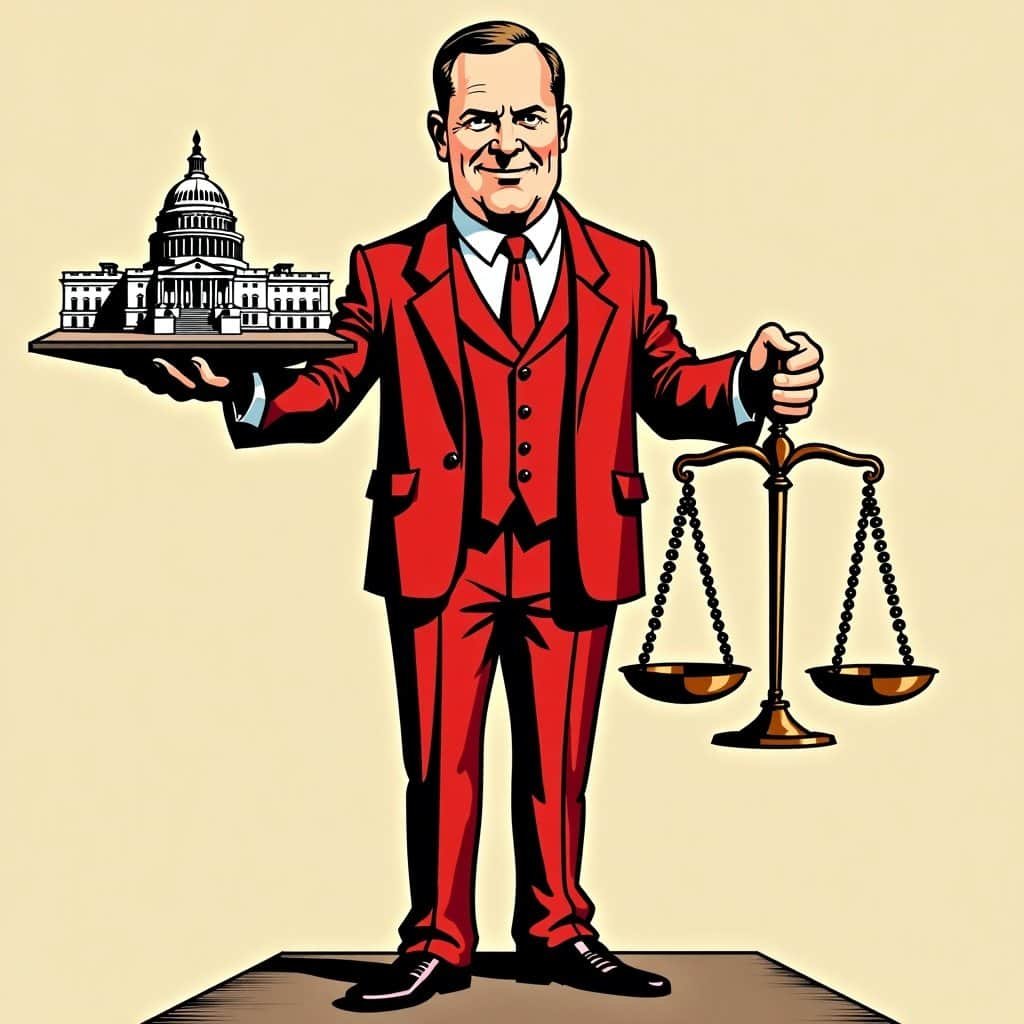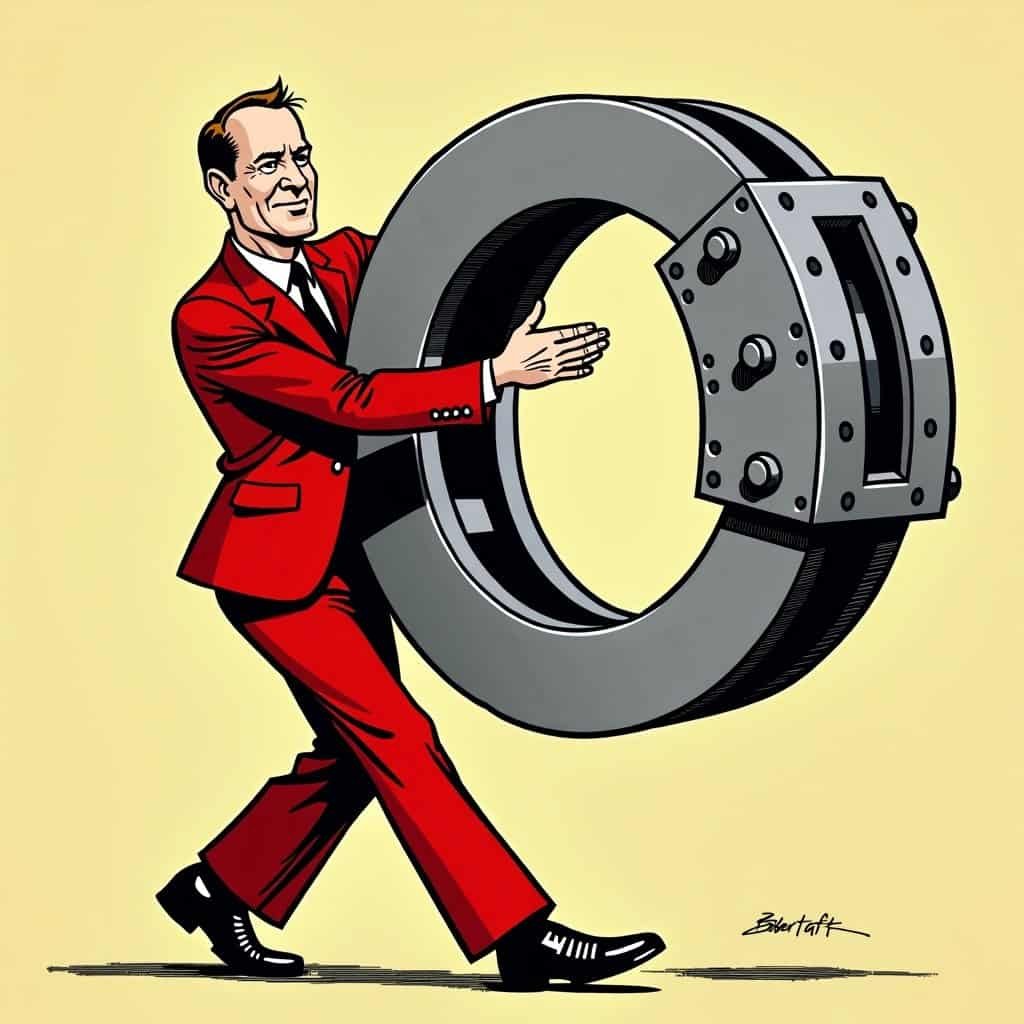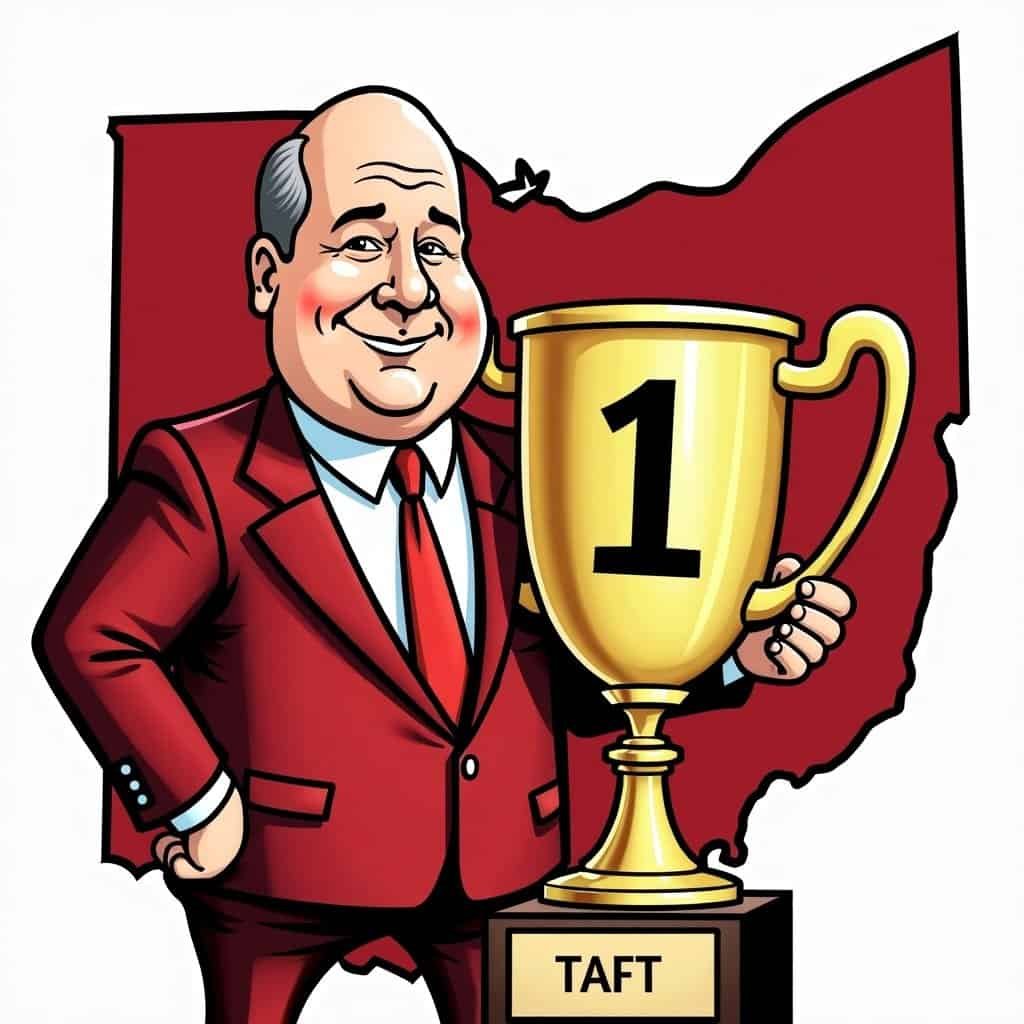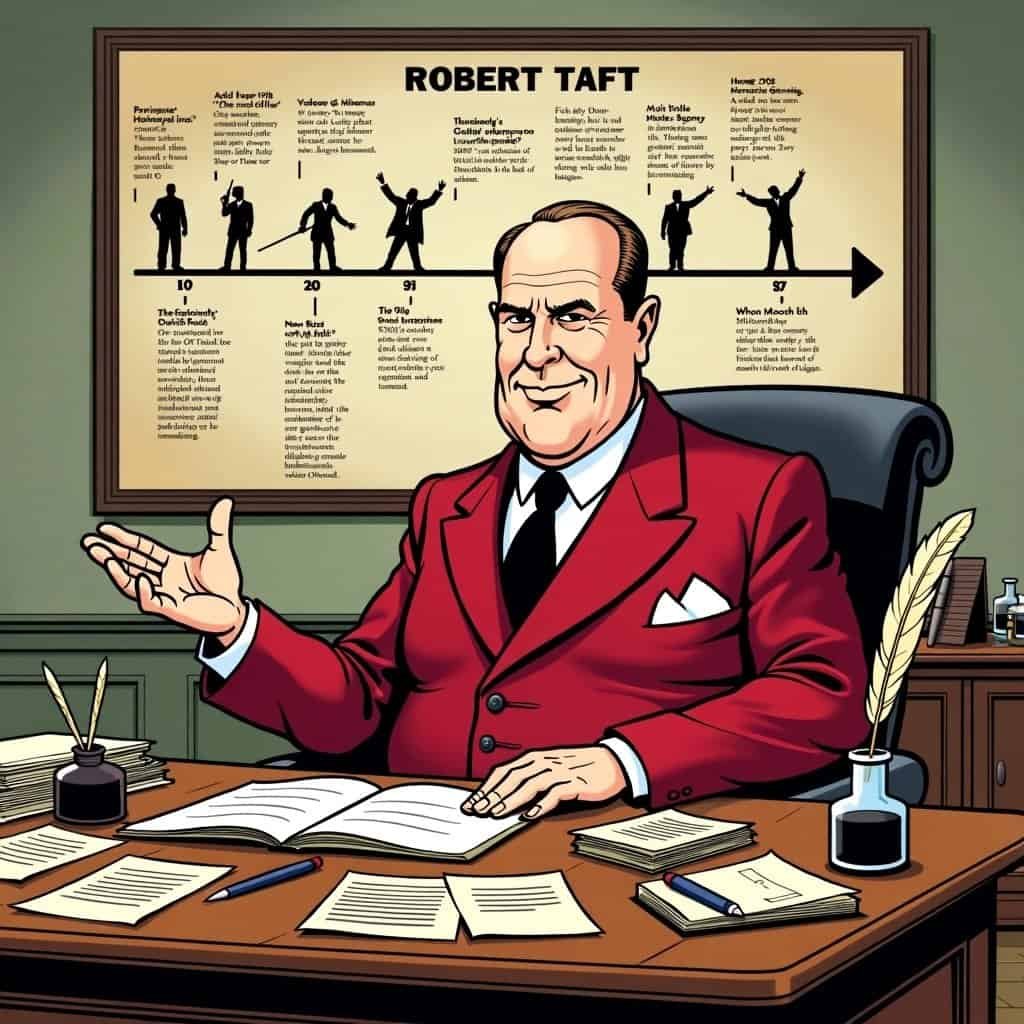Ah, the glorious days of yore, when men in weathered suits took on the daunting task of ensuring the natural order of common sense. Few excelled in this venture more than Robert Taft, a name synonymous with the steadfast defense of states’ rights. Known affectionately as ‘Mr. Republican’, Taft championed the conservative principle of keeping Uncle Sam’s nose out of the nitty-gritty of local governance. It’s a fantastic concept really—trusting those closest to the unique needs of communities to, well, know best.
Robert Taft didn’t just wake up one day and decide states should govern themselves. His advocacy was deeply rooted in a belief that state and local governments are not only better acquainted with their constituents but also less cumbersome than the federal behemoth. With a humble start in Ohio, Taft witnessed firsthand how communities thrived when they held the reins, unlike our progressive neighbors who firmly believe in big government as the all-knowing oracle.
Taft’s Vision: Decentralized Power
Picture a world where the federal government regulated everything down to how you brew your coffee. That’s the Democratic utopia! But Taft was the antidote — a firm believer in decentralized power, ensuring the federal government stuck to the essentials like national defense while giving states the freedom to tailor solutions to their own citizens. It’s almost like having your cake and eating it too—except this cake is made with local flour, by local hands, baked in a state-of-the-art kitchen funded by local taxes.
Taft’s Principles of State Governance
- ✅ Decentralized power
- ✅ Local solutions for local issues
- ✅ Limited federal intervention
- ✅ Emphasis on individual responsibility
But what about keeping the country unified, you ask? Easy! By focusing on national defense and other significant federal duties, Taft kept the states cohesive while letting them work their own magic on lesser issues. He realized that forcing homogeneous solutions on diverse populations only leads to discord—a truth progressives conveniently gloss over. It’s almost as if they believe in one-size-fits-all policies more than free will!
Taft’s Economic Vision: Capitalism and Prosperity
Even on the economic front, Taft was no slouch. He saw the danger in creeping federal economic intervention—perhaps having a crystal ball with a worrying view of today’s economy. He staunchly supported capitalism, lower taxes, and minimized regulations, ensuring that whispers of progressive socialism were kept at bay. Incredibly, this approach didn’t just work; it rocketed prosperity forward, creating an ever-growing pie for everyone to enjoy without fear that it would be garnished by overzealous federal taxmen.
The Taft Economic Model
| Principle | Benefit |
|---|---|
| Capitalism | Economic growth |
| Lower taxes | Increased disposable income |
| Minimal regulations | Business innovation |
Of course, in today’s climate, such traditional values might draw disbelieving guffaws from our friends on the left. They might even call him out of step, perhaps old-fashioned, perhaps someone who didn’t embrace their enlightened globalist ethos. Well, here’s the twist—they couldn’t be more wrong. Conservative values have always focused on individual responsibility and the prosperity of the collective as a result. And Robert Taft, as a forerunner of conservative wisdom, remains a beacon for achieving this noble balance.
The Lasting Legacy of Robert Taft
So next time you encounter the ongoing saga of states vs. federal authority, think of Taft’s legacy. His advocacy for states’ rights was less about rebellion against unity and more about ensuring the unique beauty of each state’s character thrives in harmony with its neighbors. Taste that harmony, relish it, because it’s the delicious secret ingredient of American freedom.
Table of Contents
- Taft’s Vision: Decentralized Power
- Taft’s Economic Vision: Capitalism and Prosperity
- The Lasting Legacy of Robert Taft






